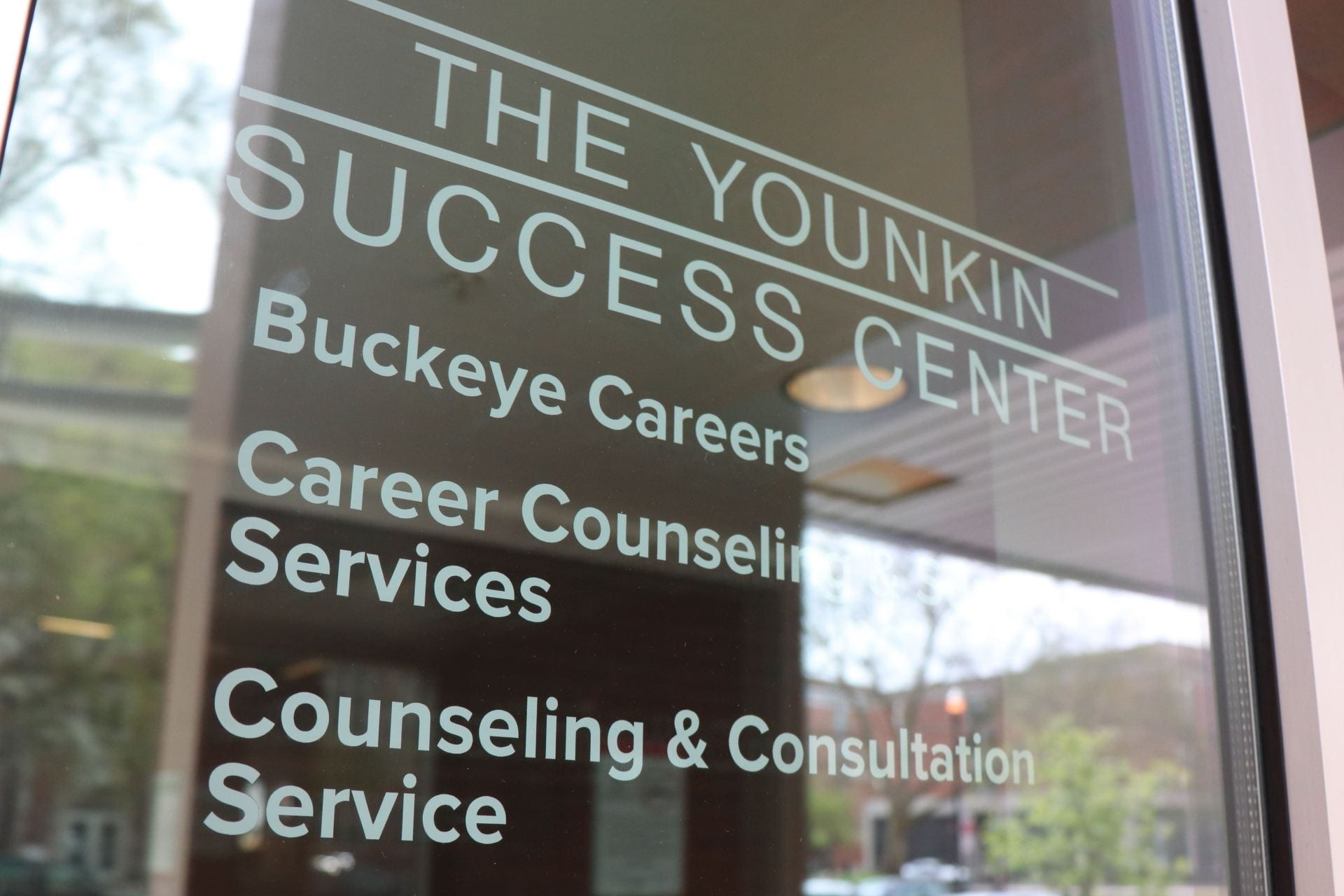
Counseling and Consultation Service is located on the fourth floor of the Younkin Success Center. Credit: Casey Cascaldo | Lantern File Photo
Annual turkey and mashed potatoes are often paired with familial stress, but students are presented with a unique set of circumstances as it nears finals season.
The holiday season’s planning, travel and emotional burdens present a challenge to the population as a whole, Dr. Kristen Carpenter, chief psychologist in the Department of Psychiatry and Behavioral Health at the Wexner Medical Center at Ohio State, said. For students, the added pressures of the semester’s end can make the Thanksgiving holiday a time of stress, rather than one of gratitude and reflection.
“It comes at a time for students where we’re coming into the Thanksgiving holiday, we’re going to move then through finals and end-of-semester papers and all of that pressure, and then into another holiday season,” Carpenter said. “So, it’s not just the holidays right now for our students, it’s really much more than that. We’ll have some that are graduating this semester — that’s a lot to take on.”
Alex Halliburton, a second-year in Russian and international business, said he worries about balancing reunions with hometown friends and end-of-semester coursework. He also said the breaks interfere with his ability to clock in for shifts at the Jesse Owens South Recreation Center.
“With my winter vacation, that means I’ll have two weeks to work with our whole break. I’m going to work, and then I don’t want to go home and study; I like studying here,” Halliburton said. “It’s going to be really hard to not go hang out with all my friends that are home and to study for finals that are a week away.”
In addition to needing to manage time, the sudden transition from an independent lifestyle back to one’s childhood home can cause emotional confusion due to a disruption of patterns, Carpenter said.
“The longer we’re all away, we come into our own in terms of independence and what kind of skills we really, and students especially, start to develop as they leave home for the first time, whether that’s for college or beyond,” Carpenter said. “Now, in an old setting, it’s easy to fall back into old habits. When we go home, when we go back to our families of origin, places we grew up, sometimes we forget the new things we have developed in our new homes or new places.”
Carpenter said coping with the return home can look different for each student, like taking small breaks from social interactions, particularly ones that may be emotionally taxing. However, maintaining some aspects of one’s routine can serve as a powerful grounding tool, she said.
“Do whatever works for you in your school environment, university setting, so they’re able to work for you in any city. If exercise is an important part of your routine, then make sure that you set aside time for that. When you’re traveling for the holidays, if it’s stressful, some sort of meditation or mindfulness is helpful. Make sure you set aside time for those things,” Carpenter said. “That might mean waking up earlier, staying up later, getting out of the house for a walk or drive.”
Halliburton said for him, maintaining normalcy means spending time with his friends while at home, rather than feeling confined to his childhood rules and expectations.
“I never like to go home. I always like living here. Mainly just because my parents and I have a good relationship, but we don’t agree on a lot of things like rules, and in general, we clash a lot,” Halliburton said. “So it’s always great to have my own place, and it was a great transition moving out.”
Kelley Breidigan, a senior lecturer at the College of Social Work, said taking breaks is a method found to be effectively calming under tense or uncomfortable circumstances. She said even leaving a room for a moment and taking deep breaths can alleviate stress.
Breidigan said the general feelings of happiness surrounding the holiday season can prove unrealistic. To counteract feelings of disappointment, she said students should try to maintain realistic expectations for the festivities and leave contentious topics at the door.
“It doesn’t mean that you can’t have uncomfortable conversations at some point, but doing so when stress levels are high probably isn’t our best bet,” Breidigan said. “Hashing out grievances at Thanksgiving dinner might not be the best choice.”
Mary Fristad, professor emeritus at Ohio State and the director of academic affairs and research development at Nationwide Children’s Hospital, said practicing self-care can play an important role in stress management. She recommended reserving time for relaxation away from others.
Above all, Fristad said she hopes students will take it easy on themselves and those around them.
“Be patient with yourself and others. We’re all going through this stress together,” Fristad said. “The slogan I’ve used to get through COVID is, ‘Be patient, be kind, don’t mind.’ ”
Students experiencing stress or anxiety are encouraged to reach out to the Younkin Success Center’s Counseling and Consultation Services.


